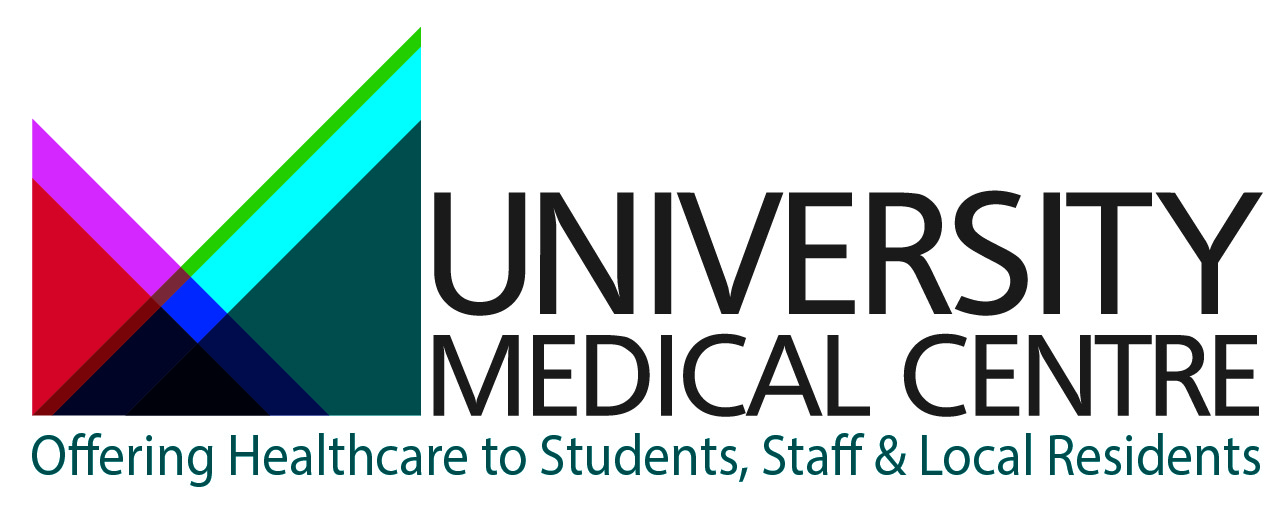Physiotherapy
The University Medical Centre is a qualified NHS provider of physiotherapy services. The Canterbury Physiotherapy and Sports Injury Clinic provide the physiotherapy services for the Medical Centre and the Clinic is located within the Canterbury Innovation Centre, adjacent to the University of Kent, although you can be referred to any of the other local NHS providers of physiotherapy if you wish.
The Doctor or Nurse at the University Medical Centre can refer you for physiotherapy if appropriate and according to NHS referral guidelines. Please go to Canterbury Physiotherapy for more information on the what to expect from a physiotherapy appointment & details of the Canterbury Physiotherapy Clinic, but please note that for NHS services you must be referred following an appointment with the Doctor or Nurse.

Physiotherapy is the treatment of injury and disease using physical remedies rather than medication. It can be used on its own or in conjunction with medical treatment.
The aims of treatment are to relieve pain and reduce swelling, to increase movement and overcome problems.
Alone or complementary to other medical or surgical procedures the body’s natural healing mechanisms are encouraged.
Physiotherapy can be used to treat a wide variety of conditions such as back and neck problems, sporting injuries (see also sprained ankle advice), skin conditions and certain specific diseases. For some treatments the doctor may need to refer you to the hospital.

What happens in a referral?
On referral patients have a thorough examination and once a diagnosis is made a course of treatment is decided upon.
A wide choice of treatment is at the physiotherapists fingertips. Many of the machines sound sophisticated such as traction, short-wave, ultra-sonic and lasers. Some of the equipment used is very simple – for example heat, ice, strapping and weights.
Techniques using hands such as massage, friction and manipulation are well established physiotherapy procedures. Exercises, often an important part of treatment are for strength and mobility. Relaxation is a systematic way of unwinding tension in the whole body in times of pain and stress.
Advice often forms an important part of treatment allowing understanding of ways to alleviate or prevent problems. Good posture, correct lifting techniques and positions for work should all be considered.
The practice of physiotherapy is known as orthodox alternative. It is governed by a strict code of ethical conduct laid down by the Chartered Society of Physiotherapy.
INDEX - Services
- Online Consultation
- The NHS App
- Test Results
- e-Referral Service
- Electronic Prescription Service
- Asthma Management
- Child Development
- Childhood Vaccinations
- Contraception Services
- Diabetes Management
- Dressings / Removal of Sutures
- Ear Irrigation
- Emergency Contraception
- Enhanced Services
- Flu Vaccination
- Mental Health Services
- Minor Illness
- Minor Surgery
- Other Visiting Services
- Physiotherapy
- Pregnancy Testing
- Private Fees
- Sexual Health Services
- Summary Care Record
- Translation Service
- Travel Clinic
- University Nursing Services
- Find NHS Services
We use cookies to help provide you with the best possible online experience.
By using this site, you agree that we may store and access cookies on your device. Cookie policy.
Cookie settings.
Functional Cookies
Functional Cookies are enabled by default at all times so that we can save your preferences for cookie settings and ensure site works and delivers best experience.
3rd Party Cookies
This website uses Google Analytics to collect anonymous information such as the number of visitors to the site, and the most popular pages.
Keeping this cookie enabled helps us to improve our website.

